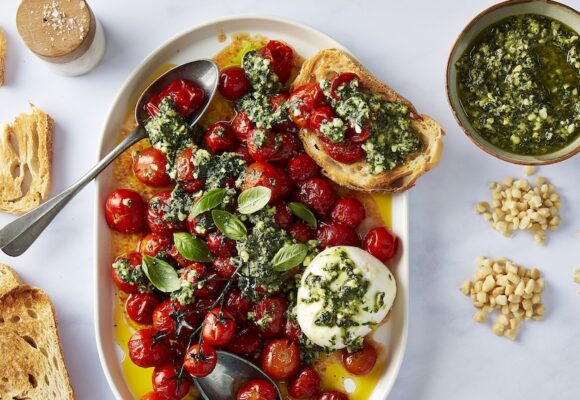
As reported earlier this year, iconic Japanese chocolate confectionery brand Meiji is celebrating 40 years of its iconic Meiji Macadamia chocolate in 2016, with the actual anniversary occurring this month.
It was an enormous privilege to host Mr Kazuo Kishida, Managing Executive Officer of Meiji Co Ltd, at the 2016 Australian macadamia industry conference recently, and hear his presentation on consumer product innovation with macadamias.
The giant of Japanese chocolate

Meiji is a Japanese dairy and confectionery business that has been operating for 100 years. Ranked as one of Japan’s top five food companies, Meiji is a giant of the Japanese chocolate confectionery market and the country’s number one chocolate brand, with demand for its products rapidly increasing worldwide. It is a truly iconic brand in Japan and its TV jingle “Chocolate is Meiji’ is very well known. As Mr Kishida explained, “40 years ago, almost nobody in Japan had eaten a macadamia, but today 90% of Japanese consumers know Meiji Macadamia chocolate,” he said. “It has become a real Japanese national food.”
With low population growth and an ageing society, demand for confectionery in Japan has been flat for some time. Despite this, western-style confectionery is growing, especially chocolate, which is making remarkable growth and has occupied the number one position in the Japanese confectionery category for the past two years.
The ‘nuts-in-chocolate’ segment of Japan’s chocolate market is dominated by almonds, with almost 50% share, followed by peanuts and macadamias at around 20% each. In the macadamia chocolate category, Meiji enjoys the largest share at more than 60%.
Macadamias win Meiji fan vote
In Japan, almond and macadamia chocolate are always compared. Meiji produces both formats, so in 2013 the company conducted a nation-wide promotion in the form of a public vote. ‘Whose side are you on – almond or macadamia?’ it asked consumers. The result was fascinating, because although almond chocolate sales have historically been higher for Meiji, macadamia won the public vote, scoring 1.91 million votes to almond’s 1.87 million. “This shows that macadamia chocolate is very, very popular in Japan,” said Mr Kishida.
A long-standing partnership
The Meiji macadamia journey began in 1976, at a time when most Japanese consumers had never experienced a macadamia. The first incarnation of the product was a chocolate bar with macadamia pieces in it; this is different to today’s format of macadamias individually coated in smooth milk chocolate. While Meiji sourced its early supply of macadamias from Kenya, as sales grew, the company increasingly turned to Australia for its kernel. Today, Meiji sources around 90% of its macadamias from Australia, with Mr Kishida citing quality, flavour and proximity to Japan as the primary reasons it enjoys a partnership with the Australian industry.
“The Japanese image of Australia is very good, it’s considered a beautiful country with great people” said Mr Kishida. “We truly appreciate your macadamia industry’s great support in producing quality nuts in this beautiful country of Australia.”
The keys to long-term success
The confectionery market in Japan is fast-paced and ever-changing. So what is it that has kept Japanese consumers’ love affair with Meiji Macadamia alive for 40 years? Mr Kishida believes it boils down to continuous enhancement of the product, and he points to the numerous ways Meiji achieves this.
- Sensory experience: Meiji has spent considerable time fine-tuning its original product, perfecting the ‘Meiji traditional roasting method’ to bring out the flavour of the macadamias, creating the perfect ratio of chocolate to nut and delivering an exquisite mix of flavour and texture.
- Packaging enhancements: Meiji Macadamia’s packaging was redesigned in 2000 to unify with that of its almond counterpart. The result was that Japanese consumers came to regard the two as sister products, with a unique mindset of ‘today almond, tomorrow macadamia.’ This new consumption pattern led to a surge in the popularity of Meiji Macadamia. Today’s Meiji Macadamia packaging has the chocolates lined up piece by piece on the tray, with the product tightly sealed to prevent light or humidity penetrating, ensuring quality is preserved.
- Active promotion: Meiji regularly creates television commercials using celebrities to conduct what Mr Kishida referred to as ‘must-buy campaigns.’ He explained, ‘These campaigns help to differentiate our product from competitors. In 2002 we featured David Beckham. He is the biggest star to feature in the promotion of nut chocolate.’ The latest commercial released earlier this year features a popular young Japanese actress, and the creative execution is designed to tackle the product’s 10% price rise that occurred in 2015 due to rising costs. “We wanted the advertisement to communicate that every piece of macadamia chocolate is precious, and so the main message is ‘Precious time can be bought by one piece’,” said Mr Kishida.
- Line extensions: flavour variations such as matcha, white chocolate and cookie have delivered great results for Meiji, as have ingredient variations, such as using the whole macadamia rather than pieces. Packaging variations have also played a role, for example, the launch of a bigger bag with individually wrapped macadamia and almond chocolate pieces was designed to encourage family sharing.
Premium and health: the future of Meiji Macadamia
Mr Kishida highlighted the two big chocolate market trends that are currently in play, being premium and health.
These global trends mirror the direction that Meiji is pursuing as it looks to the future, and the launch of its 40th anniversary Macadamia Grande product is proof. “We use 1.7 times more macadamia nuts in Grande than in our original product, with a very rich, premium chocolate,” said Mr Kishida.

By 2020, it’s estimated that sales of health-conscious chocolate will grow to seven times that of 2013, with the growth expected to come from the over 40s market segment. Earlier this year, Meiji ran an advertorial in Japan’s biggest newspaper, reaching 10 million households and 25 million people with messaging focused on the health benefits of macadamias.
Mr Kishida’s closing remarks highlighted the role of the Australian macadamia industry in Meiji’s future. “In order to achieve our future vision around premium and health benefits, your industry’s support towards better quality is truly essential. Let Meiji and Australia work together as long term partners to further enhance the value of macadamia chocolate.”
Images: Australian Macadamias and Meiji


